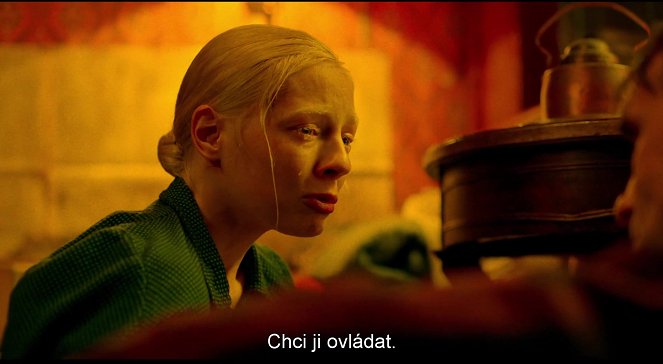Réalisation:
Kantemir BalagovScénario:
Kantemir BalagovPhotographie:
Kseniya SeredaMusique:
Evgueni GalperineActeurs·trices:
Viktoriya Miroshnichenko, Vasilisa Perelygina, Timofey Glazkov, Igor Shirokov, Ксения Кутепова, Константин Балакирев, Ольга Драгунова (plus)Résumés(1)
1945. La deuxième guerre mondiale a ravagé Léningrad. Au sein de ces ruines, deux jeunes femmes, Iya et Masha, tentent de se reconstruire et de donner un sens à leur vie. (ARP Sélection)
Critiques (3)
Un sujet admirablement difficile et des relations compliquées pour un créateur de 28 ans. De plus, l’image capture parfaitement l’atmosphère du lieu et de l’époque, ainsi que l’ambiance de l’histoire et de ses protagonistes. Bien que ce type de drame dépressif avec une mise en scène historique dans la vieille Russie soit très loin d'être ma tasse de thé, je dois saluer Balagov en tant qu'artiste. Que dirigera-t-il en tant que matador aguerri ? P.S.: Les performances des deux actrices sont brillantes. Même si la question se pose de savoir dans quelle mesure elles jouaient réellement. Le lendemain, alors que je marchais rapidement dans la rue, j'ai levé les yeux de mon téléphone portable juste un instant et j'ai croisé le regard attentif de la jeune Miroshnichenko (interprète du personnage principal très complexe). C'était exactement ce regard et la réaction à une présence qui pénétrait dans sa zone de confort, comme elle le faisait à tout le monde dans le film. Cela m'a donné des frissons. [Cannes]
()
This Russian post-war drama about physical and mental wounds and how those wounds can set off another cycle of pain is both a welcome and necessary departure from the bombastic Russian propaganda of war epics. Furthermore, it also stands on its own as a depressing drama with claustrophobically vented emotions. A separate chapter presents the precise, masterful craftsmanship, from the dramaturgy of the colour palette and interiors through the excellent camera work to outstanding acting performances. The consistently implemented form can to some extent draw attention away from the core of the film, which is the weight of guilt and the futile attachment to a vision of happiness.
()
The setting in post-war Leningrad is merely a backdrop, as the story of Beanpole is actually universal, and given that the film almost exclusively tells it through the characters rather than the setting it champions, it's actually a bit misleading. The overuse of long close-ups of characters staring at each other, looking for answers or at least relief in each other's eyes, can ultimately degrade the power of this mode of expression because, as young sensitive directors will hopefully learn one day, a facial close-up is a terribly important and powerful type of shot that needs to find its place in a space and time that often no one has built here. It goes from a close-up in one space to a close-up in another space. While the cinematography and color work are occasionally impressive in the way they forgo the proffered grayness of the post-war big city and splash pastel colors in the promise of a gradual return to better times in the illustrations of Russian storybooks, it's ultimately useless when the film for all practical purposes forgets to work with that setup in the end. It's a shame Alexei German didn't get to make something from this era.
()

